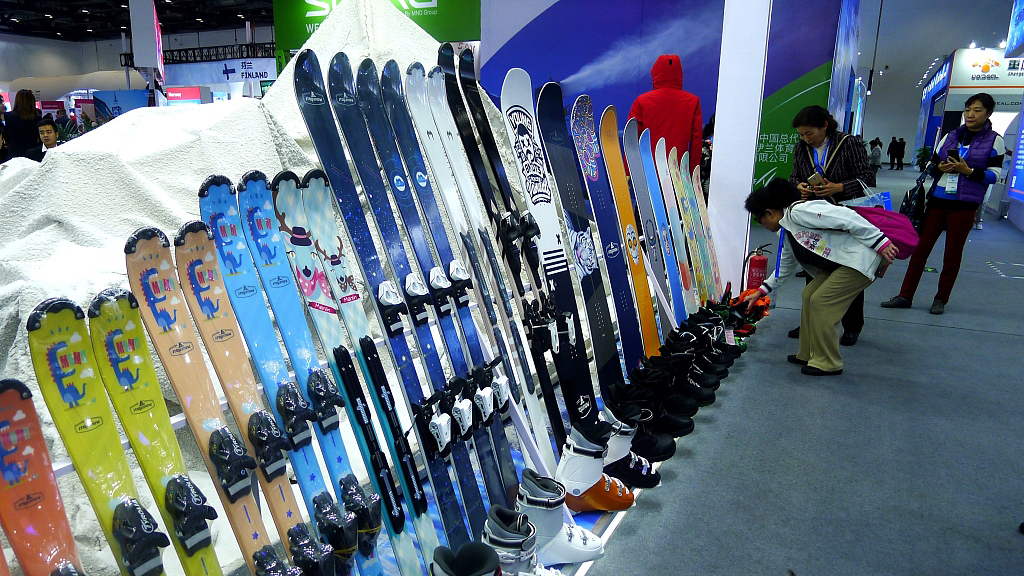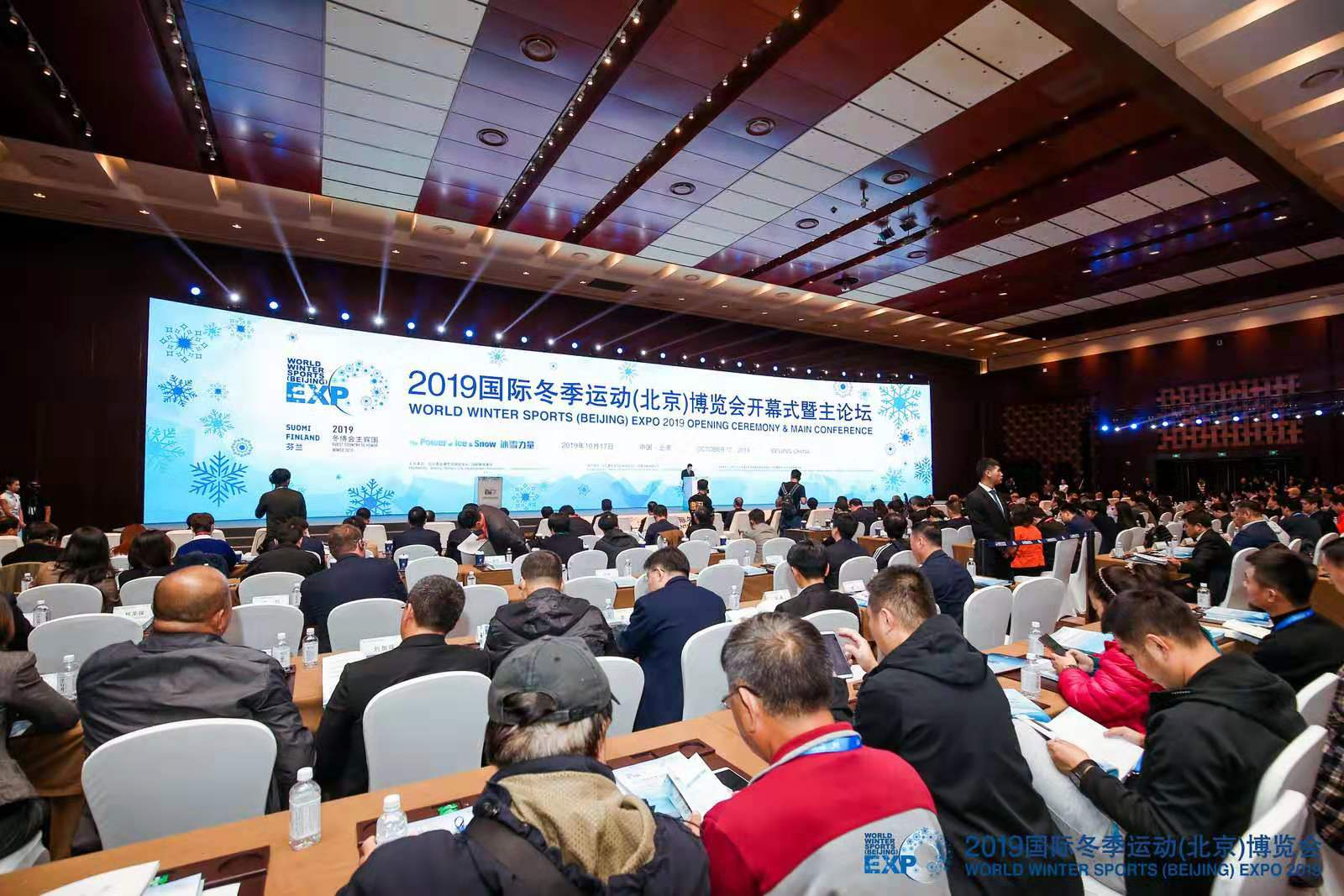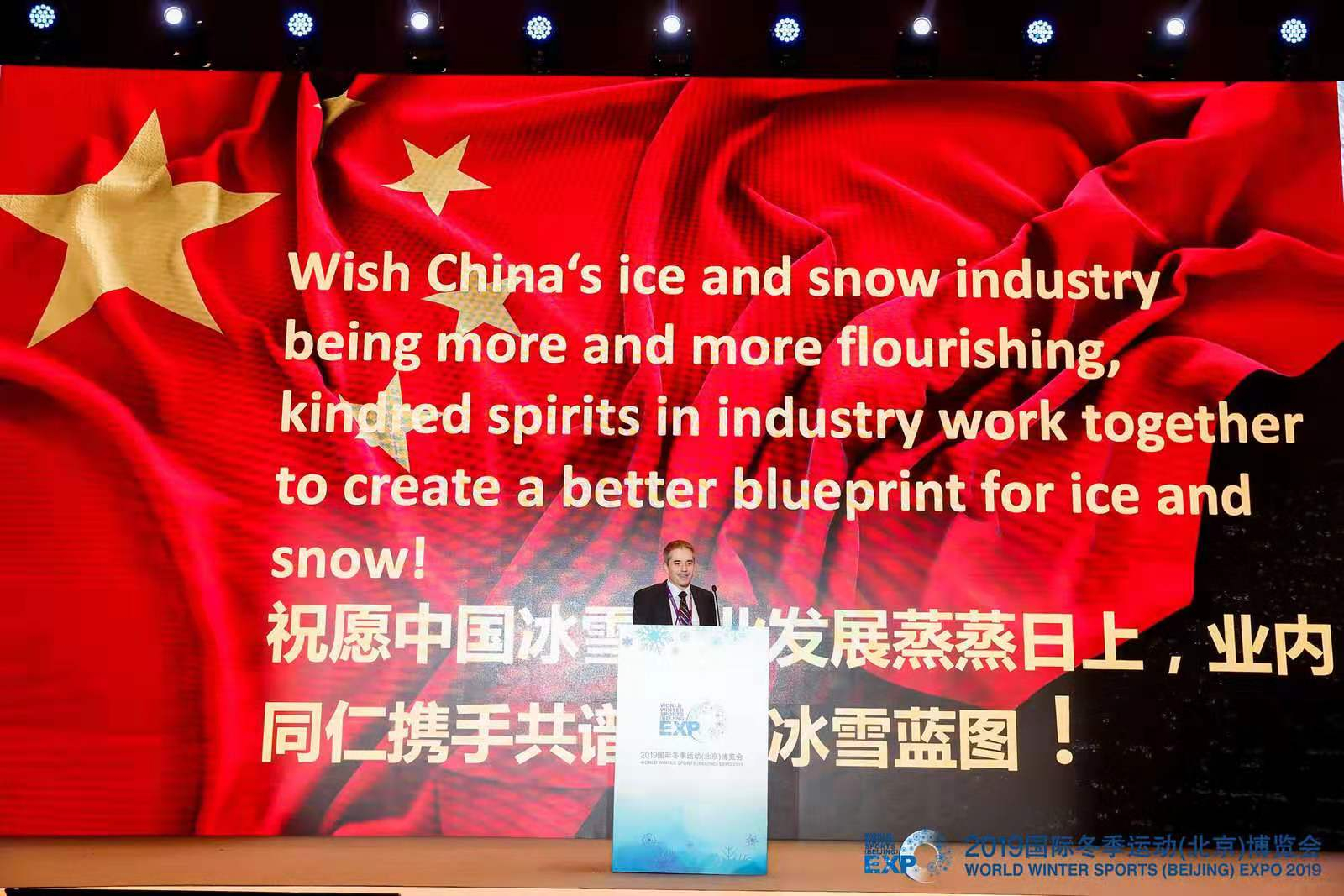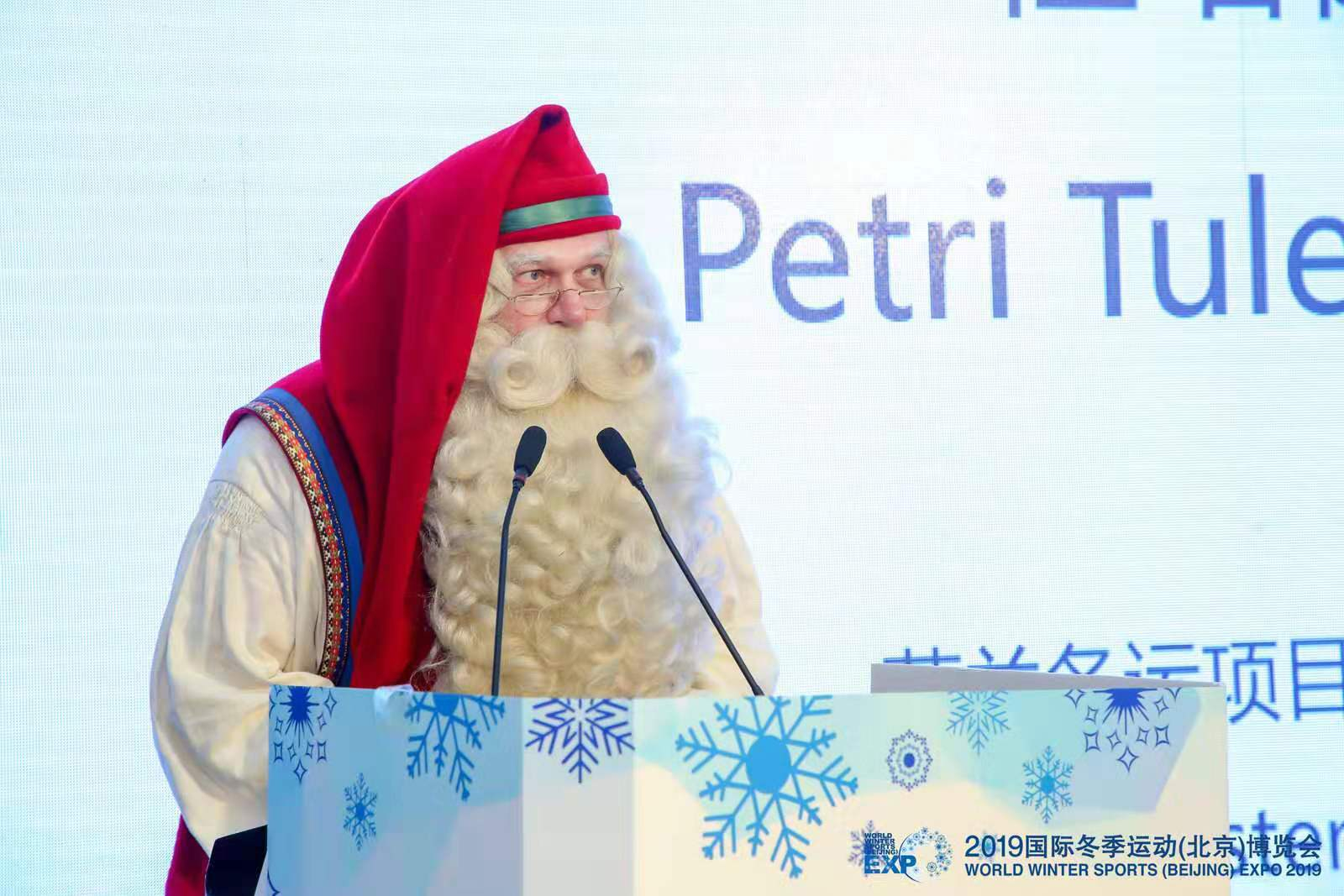02:22

What does China hosting the 2022 Olympic and Paralympic Winter Games mean to you? Well, the answer of course varies for different people and organizations. But for many companies, they would have a common answer: Valuable market and business opportunities.
The market opportunities arising from China's winter sports development and the preparations for the 2022 Winter Olympics and Paralympics have been discovered by businesses from leading European winter sports nations, as well as many authorities of these countries.
Finland and Norway are two of the leading winter sporting countries in Europe. Both have signed government agreements with China to collaborate on winter sports training and exchanges, as China looks to improve its elite-level winter sports performance.
At the same time, both countries have also been helping businesses go into the Chinese market.

/Courtesy of World Winter Sports (Beijing) Expo 2019
/Courtesy of World Winter Sports (Beijing) Expo 2019
Three years ago, Innovation Norway set up China 2022 Project to help Norwegian companies get ready for the Chinese market and do business, after the General Administration of Sport of China and the Ministry of Sports in Norway signed a memorandum of understanding (MOU) for talent-training in Norway. As part of efforts, Innovation Norway China 2022 Project also promotes relevant industries in China.
Right now, the China 2022 Project is hosting a Norwegian pavilion with a 40-person delegation, which is made up mostly by private companies, at the ongoing World Winter Sports (Beijing) Expo (Oct.17-20) that aims to promote winter sports and related sectors in China and the world.
Director of China 2022 Christian Hedlov Engh said they had helped 10-12 Norwegian companies serve Chinese people at camps in Norway, assisted Norwegian architects to understand the Chinese market and set up an office in Shanghai, and were presently helping 12 winter sports garment technology companies to explore the market here.

Christian Hedlov Engh /Courtesy of World Winter Sports (Beijing) Expo 2019
Christian Hedlov Engh /Courtesy of World Winter Sports (Beijing) Expo 2019
The ambition is to do five such projects each year through 2022. In the next three years, they are going to do 15 more.
They have set concrete goals for 2025, three years beyond the 2022 Winter Olympics and Paralympics, to measure whether their activities are successful or not.
"By 2025, we want 50 Norwegian companies to have new business in China, 10 of those to form a cooperation in China … At least 10 Chinese investments in Norway … and to create 2.5 billion Norwegian kroners (270 million US dollars) in added value and 1,000 jobs in Norway, which are related to winter sports and activities towards China," said Engh.
To put it another way, "I would say we have approximately 500 companies that are related to winter sports in one way or another – The ambition is that at least 10 percent of these companies would have activities in China by 2025.”

/Courtesy of World Winter Sports (Beijing) Expo 2019
/Courtesy of World Winter Sports (Beijing) Expo 2019
Finland has also invested much efforts to ensure their companies can grab winter sports business opportunities here. In the spring of 2018, Business Finland set up a Winter Sports Cluster to help Finnish companies with the Chinese winter sports market, one year after the presidents of China and Finland agreed on winter sports cooperation.
They have a team in Finland and a dedicated team in China working on this program, investing sizable manpower to focus only on winter sports and cooperation between China and Finland, as Jusa Susia, the commercial counselor of the Finnish embassy in Beijing, told CGTN.

Jusa Susia /Courtesy of World Winter Sports (Beijing) Expo 2019
Jusa Susia /Courtesy of World Winter Sports (Beijing) Expo 2019
The Finnish Winter Sports Cluster match-makes Chinese and Finnish companies and meets with Chinese provinces to discuss business opportunities that can be potentially leveraged by Finnish companies, among its ways to promote business activities. As of now, it has signed MOUs with several Chinese provinces.
"China is the fifth biggest trading partner of Finland. The trade between China and Finland is very important to us. When winter sports as a sport in general is growing so much in China, and when we have a very good and warm trade relation with China, we want very much to concentrate on winter sports, because it's a big economic impact to Finnish companies to grow in the Chinese market in this sector. Then of course, it's good for Finland, too," said Susia.

/Courtesy of World Winter Sports (Beijing) Expo 2019
/Courtesy of World Winter Sports (Beijing) Expo 2019
Now over 40 Finnish companies are involved in Winter Sports Cluster's activities and the number is expected to grow.
What's more, Susia also confirmed that there were no forever competitors in winter sports business. He told CGTN that though Finland and other winter sports countries inevitably compete with each other in the Chinese winter sports market, as in all businesses, they would also cooperate when there are big projects where they need to be a solution provider together.
Meanwhile, winter sports and Beijing 2022 continue to receive strong support from governments, too. For example, the newly appointed Norwegian ambassador to China, Signe Brudeset, whose term just started in May and goes on beyond Beijing 2022, will watch this area's development. According to her, the embassy is and will closely follow winter sports collaboration with China while supporting Norwegian athletes who are eager to compete in Beijing 2022.
So, with the momentum set to increase, Beijing 2022's economic effects for countries seems would grow too.